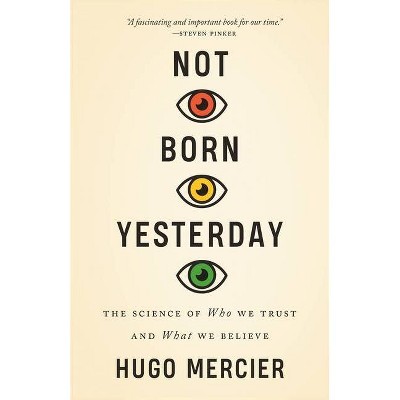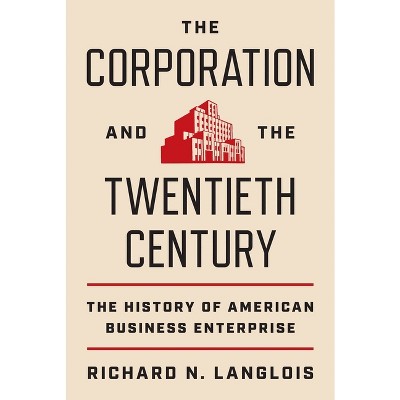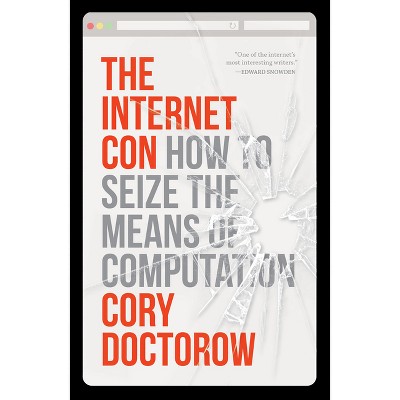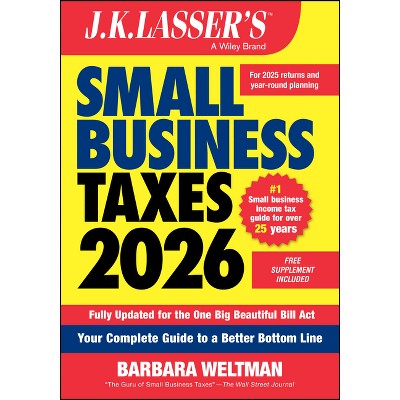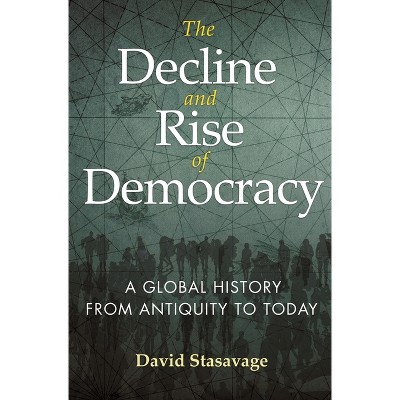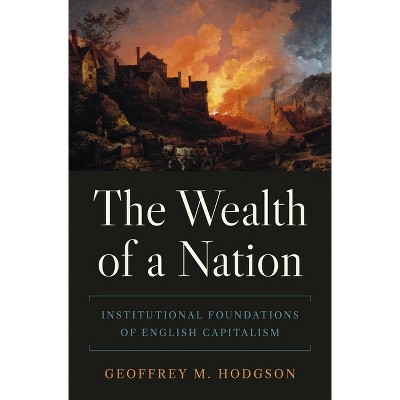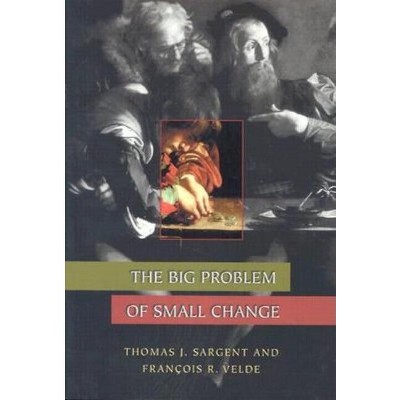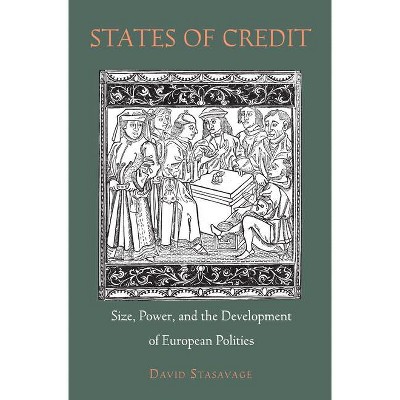Sponsored

The Corporation and the Twentieth Century - (Princeton Economic History of the Western World) by Richard N Langlois
$50.00
In Stock
Eligible for registries and wish lists
Sponsored
About this item
Highlights
- A definitive reframing of the economic, institutional, and intellectual history of the managerial era The twentieth century was the managerial century in the United States.
- About the Author: Richard N. Langlois is professor of economics at the University of Connecticut.
- 816 Pages
- Business + Money Management, Corporate & Business History
- Series Name: Princeton Economic History of the Western World
Description
About the Book
"A definitive reframing of the economic, institutional, and intellectual history of the managerial eraThe twentieth century was the managerial century in the United States. An organizational transformation, from entrepreneurial to managerial capitalism, brought forth what became a dominant narrative: that administrative coordination by trained professional managers is essential to the efficient running of organizations both public and private. And yet if managerialism was the apotheosis of administrative efficiency, why did both its practice and the accompanying narrative lie in ruins by the end of the century? In The Corporation and the Twentieth Century, Richard Langlois offers an alternative version: a comprehensive and nuanced reframing and reassessment of the the economic, institutional, and intellectual history of the managerial era.Langlois argues that managerialism rose to prominence not because of its inherent superiority but because of its contingent value in a young and rapidly developing American economy. The structures of managerialism solidified their dominance only because the century's great catastrophes of war, depression, and war again superseded markets, scrambled relative prices, and weakened market-supporting institutions. By the end of the twentieth century, Langlois writes, these market-supporting institutions had reemerged to shift advantage toward entrepreneurial and market-driven modes of organization.This magisterial new account of the rise and fall of managerialism holds significant implications for contemporary debates about industrial and antitrust policies and the role of the corporation in the twenty-first century"--Book Synopsis
A definitive reframing of the economic, institutional, and intellectual history of the managerial era
The twentieth century was the managerial century in the United States. An organizational transformation, from entrepreneurial to managerial capitalism, brought forth what became a dominant narrative: that administrative coordination by trained professional managers is essential to the efficient running of organizations both public and private. And yet if managerialism was the apotheosis of administrative efficiency, why did both its practice and the accompanying narrative lie in ruins by the end of the century? In The Corporation and the Twentieth Century, Richard Langlois offers an alternative version: a comprehensive and nuanced reframing and reassessment of the economic, institutional, and intellectual history of the managerial era. Langlois argues that managerialism rose to prominence not because of its inherent superiority but because of its contingent value in a young and rapidly developing American economy. The structures of managerialism solidified their dominance only because the century's great catastrophes of war, depression, and war again superseded markets, scrambled relative prices, and weakened market-supporting institutions. By the end of the twentieth century, Langlois writes, these market-supporting institutions had reemerged to shift advantage toward entrepreneurial and market-driven modes of organization. This magisterial new account of the rise and fall of managerialism holds significant implications for contemporary debates about industrial and antitrust policies and the role of the corporation in the twenty-first century.Review Quotes
"Winner of the Alfred and Fay Chandler Book Award, Business History Review"
"Winner of the Alice Hanson Jones Prize, Economic History Association"
"Finalist for the George R. Terry Book Award, Academy of Management"
"Illuminating. . . . Entertaining as well as scholarly, and it sheds interesting light on many of the personalities who have shaped or reshaped the American corporation. It is also a valuable corrective to some widely held misconceptions about American capitalism."---Sir Geoffrey Owen, Financial Times
"[An] outstanding endeavour. . . . A milestone for students of business as well as economic history, without forgetting the insightful comments on the history of economic theory. Consequently, it is a fundamental work for students at any level and for those at any age interested in enlarging their knowledge of economic history."---Stefano Solari, History of Economic Thought and Policy
"A richly detailed and engaging narrative of twentieth century American business."---Andrew Smith, Business History
"Finalist for the Hayek Book Prize, Manhattan Institute"
"A Foreign Affairs Best of Books"
"A monumental history of American business during the eventful decades when managers ruled."---Daniel Akst, Wall Street Journal
"Sharp analysis. . . . Chock -full of sophisticated economic theory rendered in lucid prose, this adds up to a bracing evaluation of a consequential and once dominant commercial entity."-- "Publishers Weekly"
About the Author
Richard N. Langlois is professor of economics at the University of Connecticut. He is the author of Firms, Markets, and Economic Change: A Dynamic Theory of Business Institutions (with Paul L. Robertson); The Dynamics of Industrial Capitalism: Schumpeter, Chandler, and the New Economy, which won the Schumpeter Prize of the International Joseph A. Schumpeter Society; and other books.Dimensions (Overall): 9.5 Inches (H) x 6.4 Inches (W) x 2.5 Inches (D)
Weight: 3.2 Pounds
Suggested Age: 22 Years and Up
Series Title: Princeton Economic History of the Western World
Sub-Genre: Corporate & Business History
Genre: Business + Money Management
Number of Pages: 816
Publisher: Princeton University Press
Format: Hardcover
Author: Richard N Langlois
Language: English
Street Date: June 27, 2023
TCIN: 87247038
UPC: 9780691246987
Item Number (DPCI): 247-41-0701
Origin: Made in the USA or Imported
If the item details aren’t accurate or complete, we want to know about it.
Shipping details
Estimated ship dimensions: 2.5 inches length x 6.4 inches width x 9.5 inches height
Estimated ship weight: 3.2 pounds
We regret that this item cannot be shipped to PO Boxes.
This item cannot be shipped to the following locations: American Samoa (see also separate entry under AS), Guam (see also separate entry under GU), Northern Mariana Islands, Puerto Rico (see also separate entry under PR), United States Minor Outlying Islands, Virgin Islands, U.S., APO/FPO
Return details
This item can be returned to any Target store or Target.com.
This item must be returned within 90 days of the date it was purchased in store, shipped, delivered by a Shipt shopper, or made ready for pickup.
See the return policy for complete information.
Frequently bought together

$9.02 - $19.99
MSRP $17.00 - $19.99
4.6 out of 5 stars with 566 ratings



